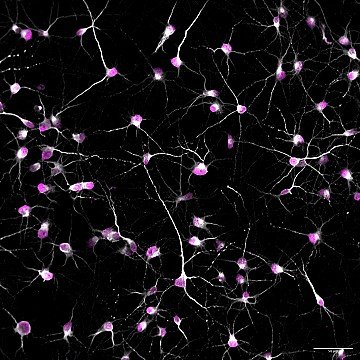07 May 2024
The Harschnitz Group has been awarded a grant from the ItsME Foundation to develop a human pluripotent stem cell (hPSC)-derived brainstem model to understand brainstem encephalitis. The ItsME Foundation was founded in 2019 by Jur Deitmers and has its base in The Netherlands, with the goal to fight Meningitis and Encephalitis.
Autoimmune encephalitis (AIE) is a group of disorders where the immune system mistakenly attacks healthy brain cells, causing inflammation. Symptoms range from memory loss to seizures and psychiatric issues.
The study will leverage hPSC technology to create disease-relevant cells of the central nervous system, in particular the brainstem, which are less understood in AIE pathology. This approach, utilising advanced stem cell techniques, promises insights into AIE pathogenesis and potential therapeutic avenues, reducing reliance on animal models.
“Our goal is to develop a novel model of the human brainstem, that can be leveraged to study both the normal development of the brain as well as pathology affecting the brainstem” – Oliver Harschnitz explains – “At HT, we will work closely with the National Facility for Genomics, which will help us to profile at a single-cell resolution the fidelity of our model. This project is important to our goals to further understand the molecular mechanisms underlying pathology of the human brainstem. We will do this using multiple single-cell profiling methods that will help us to dissect the cell-type vulnerability within the brainstem for specific autoantibodies.“

